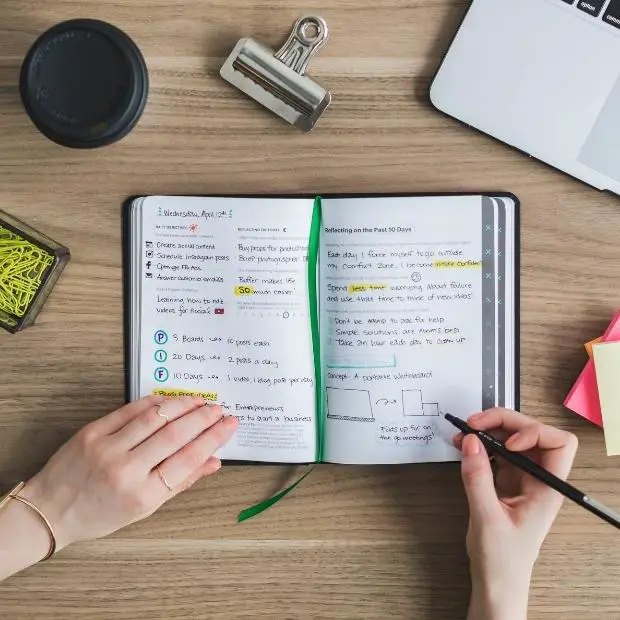
Have you ever got stuck reading the same paragraph or page trying to understand a concept with no success?
If you want to develop effective study habits, you know that cramming or using the wrong study techniques will waste your time and energy. Whether you’re in high school or college, experiment with different study strategies. It’s time to discover your unique learning style and make faster progress with your studies. In this article, you’ll find some of the most effective study strategies that will double your learning speed.
Discovering the main styles of learning:
- Social – learning with others, through social interaction
- Visual – learning with images, diagrams, games, mind maps
- Auditory – learning with audiobooks or recorded lectures
- Solitary – learning on your own through whatever means possible
- Verbal – learning by verbalizing the material
- Kinesthetic – learning through touch and manual operation of physical objects
- Logical – learning by taking your topic apart and structuring it
Every student has their learning style. Understanding these learning styles will enable you to discover the study strategies that work best for you.

It’s time to add some new tactics to your study toolkit.
Effective study strategies for different learning styles
Every individual learns things differently. No one method works for everyone. Therefore, you need to figure out your learning style to come up with strategies that work for you.
1. Visual learners
Visual learners understand concepts easily by seeing. With a preference for visualizing, they learn from visual content, including charts, colors, and videos. Tutors can help these learners get better by showing concepts practically and allowing them to express their thoughts visually.
Some methods that visual learners should use include:
- Using colored pens or highlighters to mark important information or track various concepts
- Creating a visual representation of what they want to study to improve their understanding. These include timeline templates, maps, outlines, and charts
- Forming mental images of the concepts in their heads
2. Aural learners
Aural learners understand concepts easily through listening. Things like podcasts, music, and lectures enable audio-inclined learners to grasp and remember various concepts. Fortunately, there are many learning styles examples for students listening to engage with today than ever before. As an aural learner, you can find paper samples to read and get good grades.
Some of the effective methods for aural learners include:
- Finding a study partner to discuss various concepts
- Using flashcards to process and repeat information that hasn’t been grasped.
- Listening to audiobooks, podcasts, and lectures to absorb information using their ears
- Recording lectures with the professor’s permission

Your computer offers unlimited learning possibilities – you just have to know where to look.
3. Kinesthetic learners
Kinesthetic learners respond best to auditory or visual learning combined with hands-on demonstrations. They have excellent motor skills, memory, and high levels of energy. There are several learning strategies that kinesthetic learners can use to retain information.
They include:
- Taking short breaks during their sessions
- Study while moving around to stay engaged
- Multitask, but not with distractions such as phones or TV.
- Use a mind map to find connections between different ideas
4. Verbal learners
These learners understand education concepts using written materials or the spoken word. Writing or discussing problems in class can help verbal learners retain important information.
Some of the most effective study methods for verbal learners include:
- Using mnemonic devices such as acronyms, rhymes, and stories to remember information
- Asking questions in class and listening attentively. They can record lectures and use their recording to write down notes
- Finding a study partner to help them understand different concepts
- Reading books and notes aloud with a study partner or alone
5. Logical learners
These learners use relationships and patterns to understand materials. Logical learners enjoy using data, charts, puzzles, and diagrams to learn. Effective study methods for logical learners include:
- Using visual tools such as timelines, diagrams, graphs, and maps to find patterns and grasp information
- Asking questions to understand study materials instead of memorizing
- Having a schedule and setting clear goals. Consider using the Pomodoro technique to boost your productivity and performance

Creating notes in longhand is still one of the most effective ways to boost information retention.
Defining good study habits
With an effective strategy, learning becomes effective. Learning style simply means the method you choose to understand concepts. The best study habit is the one that helps you achieve your goals. When you want to study, here are some ways to study effectively:
1. Find a great learning environment
Whether you are studying by yourself or in a group, you are likely to understand important concepts or complete your assignments faster in a quiet environment than in a noisy one. A good study space will enhance your focus and help you manage your time effectively. Keep in mind that a noise-free environment doesn’t always translate to productivity. If your environment is full of distractions, you will not likely get the work done. Some of the biggest distractions include television, smartphones, and social media.
2. Stick to a daily study routine
To get good grades, create a study schedule and stick to it. Procrastinating and pulling all-nighters are not effective study habits. Various research studies have shown that studying all night translates to poor grades.
Having a routine will enable you to:
- Increase the effectiveness of your study time
- Boost your productivity
- Try out effective techniques
- Avoid procrastination and cramming before tests
Instead of working on a big project or revising an entire book, consider breaking this task into manageable portions. This is an effective habit that will enable you to get the work done and help you manage your time effectively.
3. Plan your study sessions
Students who don’t take the time to create a study plan usually get poor grades because they get distracted, procrastinate, and use ineffective strategies to study. You can improve your time-management skills by planning out your study sessions.
To do this effectively, you need to ask yourself these questions:
- Which study materials do I need to have?
- What strategy am I going to use?
- What do I want to achieve?
Before you start your study session, ensure that you have everything in place. In the end, you’ll feel more confident and accomplished as a student.
Ready to learn much faster?
Every college student has a unique learning style. Knowing unique and modern learning methods will help you figure out which study methods are ideal for you. You have everything you need to excel. All you have to do is use the right tools and techniques. Experiment with various ideas from this article and test yourself to find out which method brings you the best results. Next up, you may want to explore a guide on how to become more creative.
Hey there, welcome to my blog! I'm a full-time entrepreneur building two companies, a digital marketer, and a content creator with 10+ years of experience. I started RafalReyzer.com to provide you with great tools and strategies you can use to become a proficient digital marketer and achieve freedom through online creativity. My site is a one-stop shop for digital marketers, and content enthusiasts who want to be independent, earn more money, and create beautiful things. Explore my journey here, and don't forget to get in touch if you need help with digital marketing.

